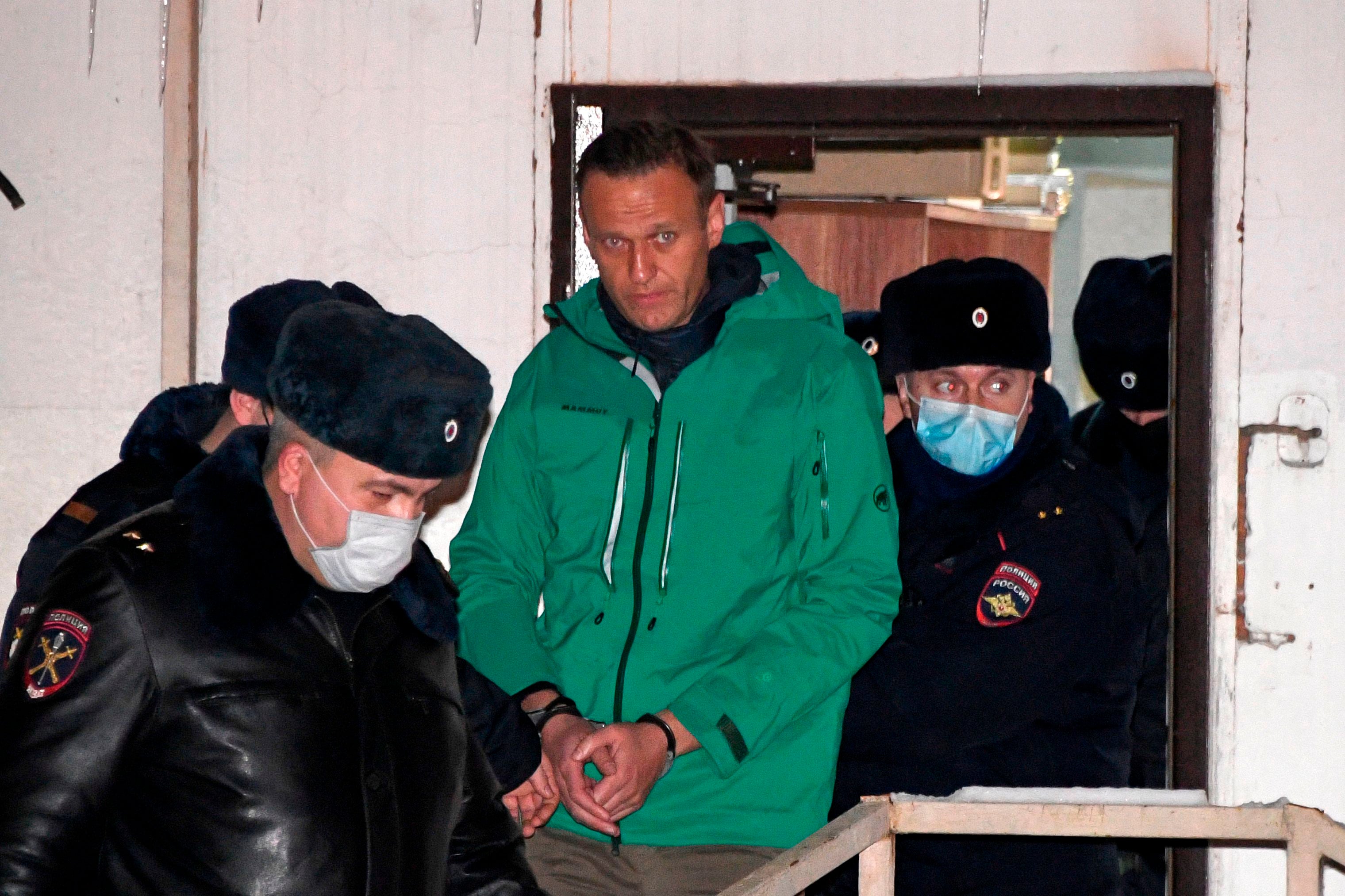Putin sees Kremlin critic Alexei Navalny as a threat with good reason – after all, he’s not invincible
Editorial: Growing pressure from the west could loosen the Russian president’s iron grip on power

It is perfectly possible that Alexei Navalny, the nearest thing Russia has to a leader of the opposition, will one day be reported to have died in prison from some rare disease or unlikely accident. If not, then the Kremlin will almost certainly find some reason or other to detain him indefinitely. That, after all, has pretty much been the offer made to him by Vladimir Putin. The Russian authorities made it clear that if Mr Navalny dared to return to his motherland then he would be detained on arrival, his future bleak.
So it is to the credit of Mr Navalny and his wife Yulia that they defied the threats and returned home, his treatment in Germany completed. He escaped narrowly with his life, having been poisoned with novichok, a lethal nerve agent, by actors working directly or otherwise on the implicit wishes of Russia’s leaders, for that is how “deniable” business is conducted in Moscow these days.
Perhaps Mr Navalny has committed some offences and condoned financial irregularities – though he denies it. He is, after all, a Russian politician, and such activity tends to go with the territory. He is no saint, and he may not be an ideal poster boy for liberal values; yet he is all Russia has at the moment, and he represents something – an argument, an alternative, a challenge – that President Putin finds irksome. So much so, as we have seen, that he has been the subject of at least one attempt on his life, as well as constant harassment.
He could have stayed in the west, as countless defectors have before, and probably been left unmolested (though the Skripal affair suggests otherwise). Instead, Mr Navalny called Mr Putin’s bluff in this year of parliamentary elections. Who runs the Duma may not matter much more than it did in the days of Tsar Nicholas II, but it provides some sort of platform for dissent, even though Mr Navalny himself will be unable to run for office.
Mr Putin might, however, just take more notice of western protests – if they are accompanied by assertiveness in military preparedness (including cyber defence) and economic sanctions. This is the long lesson of history, because socialism in one country, and its modern equivalent, has never worked. Russia’s leaders have often found themselves presiding over mismanaged, stagnant economies and a population disappointed with its living standards, and having to distract from the discontent with propaganda, popular nationalism and foreign adventures – hence President Putin’s little wars in Georgia and Ukraine, as well as well-publicised assassinations of traitors and espionage (including interfering in elections).
At last, America has found its voice again. Joe Biden has already reset US policy towards Russia, with his national security adviser condemning the treatment of Mr Navalny. After years of curious silence and indulgence under Donald Trump, including silence after a cyberattack on the Pentagon last month, America is indicating, implicitly, that it is prepared to hurt Russia and its leaders with sanctions.
Some in the European Union have followed suit. The EU, which now contains many former member states of the Soviet Union and the eastern bloc, has considerable skin in this game, and leaders whose memories of Russian occupation are fresh. Sceptical as they are about Brussels, Poland, for example, will stick with Europe for as long as it fears Russia. Having won the Cold War against the Soviet Union by outperforming it economically and militarily, the time has sadly come to exert that same pressure again. For whatever reason, internal repression and external aggression have returned as the foundations of Russian state policy.
Though wily, powerful and still ambitious, Putin is not invincible. If he cannot deliver for his people and make them more prosperous and more secure then sooner or later the truth will out. A little over three decades ago the Union of Soviet Socialist Republics also looked like it was in no danger of imminent collapse – until it was, and it did. The same might be remarked of the rapid fall of the Romanovs. Before this decade is out it may be Mr Putin who has to worry about someone poisoning his underpants.




Join our commenting forum
Join thought-provoking conversations, follow other Independent readers and see their replies
Comments